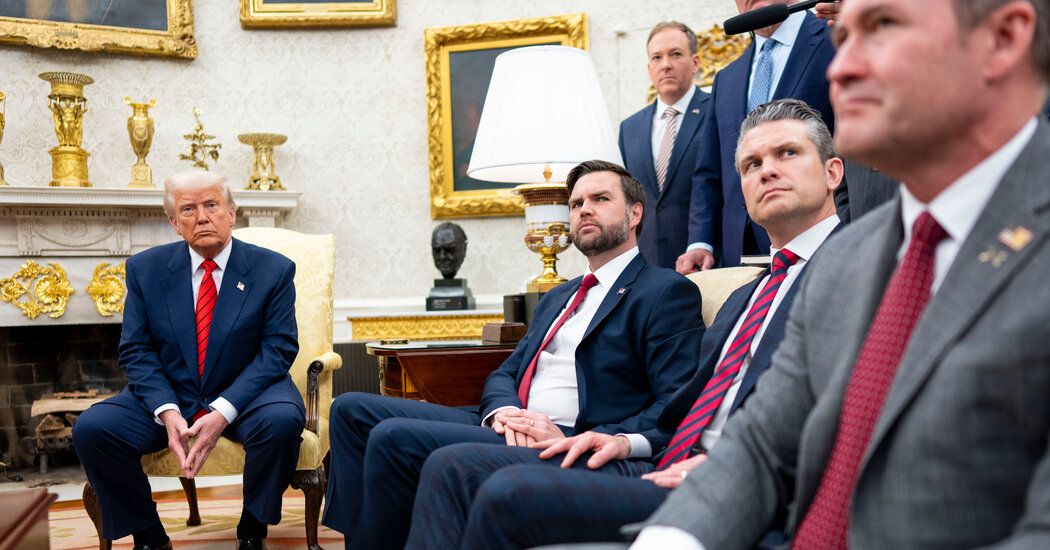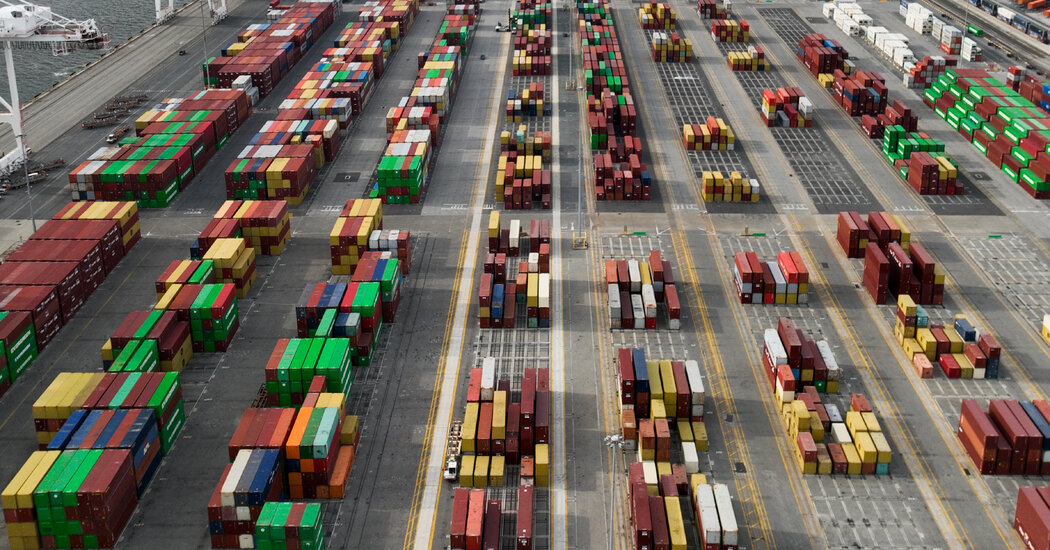Tensions Rise as US-EU Relations Reach Breaking Point
Officials in Trump’s administration have demanded increased European military spending and questioned the continent’s values. Several leaked messages reveal the depth of the disagreements.
Disagreements Over European Military Spending and Values in Trump’s Administration
European leaders are grappling with the implications of the apparent disdain and shifting attitudes coming from the Trump administration. As meetings in Paris and discussions among NATO foreign ministers loom, the urgency for Europe to bolster its own defense capabilities becomes ever more pressing. There’s a growing acknowledgment that while strengthening military capacities is vital, it cannot substitute the comprehensive alliance once shared with the United States. Europe is facing the harsh reality of needing to brace for a possible future where it must rely less on America and more on its own resources and partnerships. This shift is pushing EU nations to consider integrating their defense strategies across the continent more robustly. However, beyond defense arrangement dialogues, European officials are engaging in trade negotiations with the United States to prevent further economic rifts amidst increasing tariffs threats. Despite these tensions, efforts are underway to maintain diplomatic communications, reflecting the complex interplay of cooperation and contention shaping current transatlantic relations.
Transatlantic Relationship Under Strain
In light of these tensions, European leaders are recognizing the need for a strategic pivot. Ensuring self-reliance has become a priority as they attempt to prepare for a geopolitical landscape where the traditional reliance on American defense and support might dwindle. With the Trump administration’s erratic and dismissive treatment of Europe, officials across the continent are increasingly contemplating a future that hinges on European unity and strength. This realization is driving initiatives aimed at enhancing defense capabilities and ensuring that Europe can stand on its own, both economically and militarily, in a rapidly shifting world order. While the historical ties with the United States remain, the focus is slowly shifting towards a more independent approach to regional and global challenges.
The increasing disdain for European cooperation
As Europe faces this new reality, there is a growing sense of urgency among its leaders to redefine their strategic and military landscape. The realization that the continent might have to rely more on its own capabilities is prompting a reevaluation of existing defense policies. Leaders are actively exploring how to enhance collaboration among EU member states to bolster collective security. This includes considering deeper integration of defense industries and increased investments in cutting-edge technologies. Additionally, there is an emphasis on fostering stronger ties with other global partners, potentially creating new alliances to mitigate the impact of a cooled relationship with the United States. The pressing need for a unified and robust European defense strategy is becoming more apparent as the political climate shifts.
Future of the Transatlantic Alliance
In light of these developments, the Atlantic alliance is at a crossroads. Efforts to bridge the widening gap between the United States and Europe will require a dedicated commitment to restoring mutual trust and respect. As both sides confront these challenges, they must remember the shared history and values that form the bedrock of their relationship. While recent events have cast a shadow on this partnership, the potential to strengthen these bonds and work toward common goals remains if both parties are willing to engage constructively and address their differences. The future of transatlantic ties will depend on cooperation, dialogue, and a renewed commitment to shared interests and values.















Post Comment